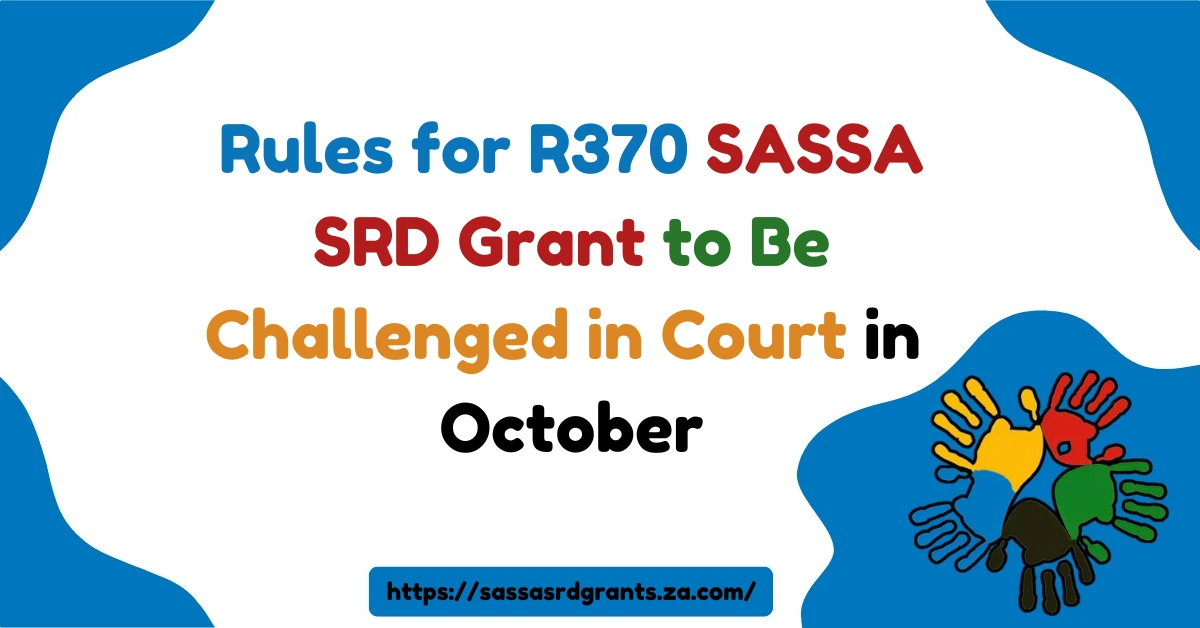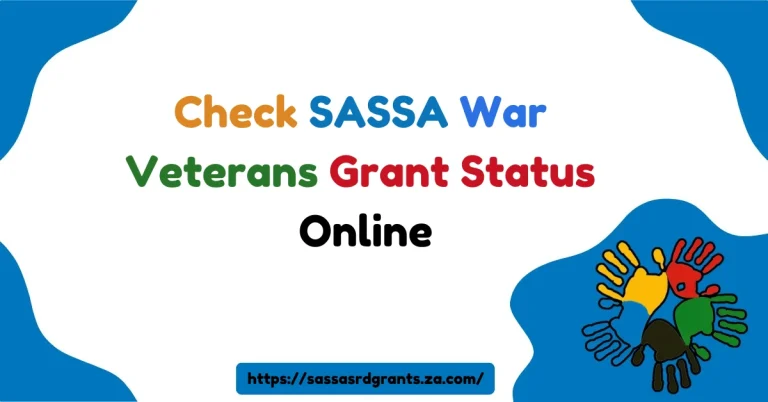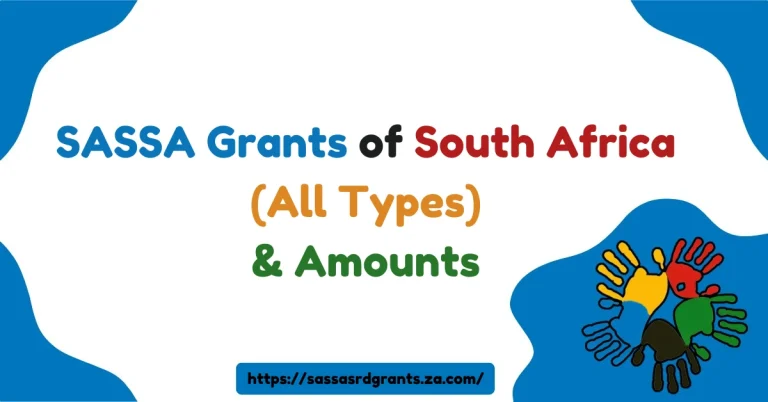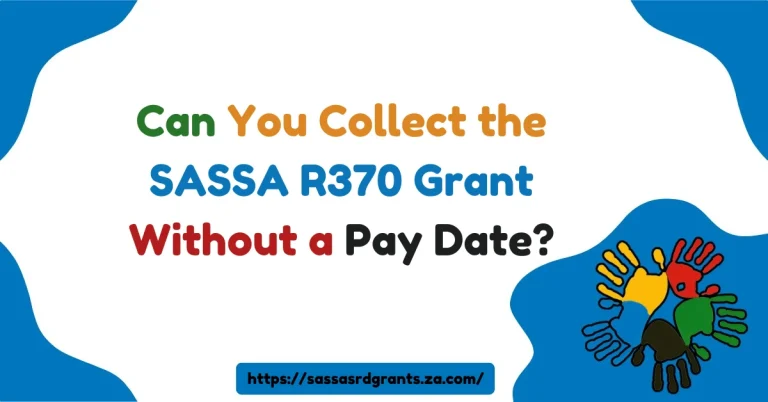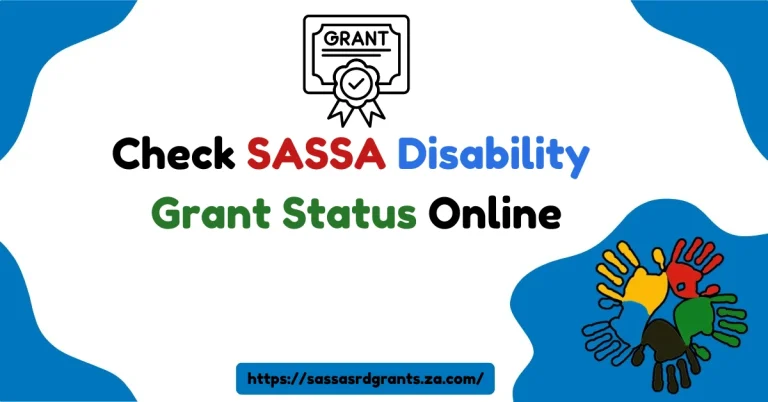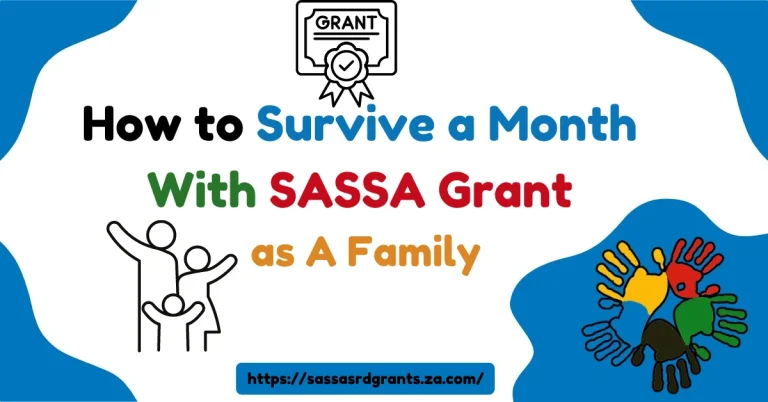Rules for R370 SASSA SRD Grant to Be Challenged in Court in October
The current state of the R370 SASSA SRD grant is worrying. Recent data shows that of the 17 million applications submitted last month, only 7 million were successful, leaving a large portion of the population without much-needed support.
With only one-third of applications approved, serious questions arise about the sustainability and accessibility of this grant, which plays a vital role in supporting those hit hardest by poverty and unemployment in South Africa.
The grant was created as part of a broader initiative by the African National Congress (ANC) to tackle the country’s growing unemployment crisis.
In the run-up to the 2024 elections, the ANC even promised to transition this temporary assistance into a Basic Income Grant by 2026. However, financial limitations and a surging number of applicants are raising doubts about the future of this commitment.
Rules for R370 SASSA SRD Grant to Be Challenged in Court in October(Quick Answer)
The R370 SASSA SRD grant is facing a legal challenge in the Pretoria High Court on October 29, 2024. Activist groups argue that the eligibility criteria, particularly the income threshold, are excluding many deserving applicants. The case aims to redefine “income” and improve access, especially for those without internet. If successful, the ruling could bring much-needed reforms, enhancing grant accessibility and adjusting the threshold to account for inflation.
Understanding the R370 October SASSA SRD Grant
The R370 SRD grant aims to provide a financial lifeline to South Africa’s most vulnerable residents, particularly those with no other source of income.
As many South Africans continue to grapple with poverty and unemployment, the demand for the grant has skyrocketed, especially during the post-pandemic period. While this initiative has been lauded for its intentions, the system’s current capacity to deliver has raised serious concerns.
Before the May 2024 elections, the ruling ANC had committed to transforming the SRD grant into a more permanent Basic Income Grant by 2026.
However, the reality is far more complicated, as the overwhelming number of applications far exceeds the financial resources currently available.
Many experts now worry that the country’s budget may not be able to sustain the growing demand for the grant.
The Financial Strain of Grant Applications
One of the most pressing issues surrounding the grant is the financial strain it places on the country’s budget. The Department of Social Development (DSD), which is responsible for administering the grant, faces a tough balancing act.
Although the DSD receives one of the largest portions of the national budget, the sheer number of applicants for the SRD grant could push monthly expenses beyond R6 billion.
To put this into perspective, the ratio of grant beneficiaries to taxpayers is now more than two to one, creating a situation where the financial burden is unsustainable in the long term.
This imbalance raises a critical question: how can the government continue to fund this initiative without overwhelming taxpayers or causing major budgetary crises?
Legal Challenge in High Court
Another critical development surrounding the R370 SASSA SRD grant is the legal challenge set to be heard in the Pretoria High Court on October 29, 2024.
Activist groups like #PayTheGrants and the Institute for Economic Justice (IEJ) are calling for changes to the eligibility criteria, which they believe are unjustly excluding many South Africans from receiving much-needed financial assistance.
At present, to qualify for the SRD grant, applicants must have an income of less than R625 per month. However, many activists argue that this threshold is too low, particularly in the face of rising inflation and living costs.
The court case aims to redefine the term “income” so that only earnings from employment are considered, rather than other types of financial support, such as money received from family or friends.
This court case could bring about significant changes, not only to the eligibility criteria but also to how the grant is administered in the future. Should the court side with the activists, it could pave the way for a more inclusive system that better reflects the realities faced by low-income households across South Africa.
Accessibility Issues and Online Application Process
Another significant point of contention is the online application process required for all SRD grant applicants. While the DSD argues that the digital system is quick and efficient, many activists claim it is unconstitutional for those without access to the internet or smartphones.
This issue is especially prevalent in rural areas, where infrastructure is often lacking, leaving many potential applicants unable to apply.
The IEJ and other organizations argue that the government must offer an alternative, such as in-person applications, to ensure equal access to the grant. Without such changes, they argue, many South Africans will continue to be unjustly excluded from receiving the support they desperately need.
In response, the DSD has introduced a WhatsApp feature to help streamline the application process and assist those who may struggle with navigating the SRD website.
However, the department remains firm in its stance that allowing 17 million in-person applications would overwhelm SASSA offices and delay the distribution of funds even further.
What’s Next for the R370 October SASSA SRD Grant?
As the High Court challenge approaches, it’s clear that changes need to be made to the current system. The debate surrounding the eligibility criteria and the definition of income is just one of the many issues that need to be addressed.
If the court rules in favor of the activists, we may see significant reforms to the SRD grant system, including raising the income threshold and changing how eligibility is assessed.
Additionally, improving the application process is crucial. A more inclusive system that accommodates both online and in-person applications could help address the digital divide that currently prevents many rural and low-income citizens from accessing the grant.
Frequently Asked Question(FAQ’s)
1. What is the R370 SASSA SRD grant?
The R370 SASSA SRD (Social Relief of Distress) grant is a temporary financial assistance program aimed at supporting South Africans facing economic hardships, particularly due to unemployment or other crises.
2. Why are the rules for the R370 SRD grant being challenged in court?
The rules are being challenged due to concerns over the eligibility criteria and the process used to distribute the funds. Some argue that the current regulations unfairly exclude many who need assistance.
3. When will the court challenge take place?
The legal challenge regarding the rules for the R370 SRD grant is set to be heard in October 2024.
4. Who is challenging the SRD grant rules?
Various civil society organizations and advocacy groups are leading the challenge, arguing that the current rules are restrictive and fail to meet the needs of vulnerable citizens.
5. What are the key issues with the SRD grant’s current rules?
The main issues include strict eligibility requirements, delays in payments, and concerns over transparency in how applicants are approved or denied.
6. How does the current SRD grant eligibility work?
Under the current rules, applicants must meet specific criteria, such as being unemployed and having no other source of income. Critics argue that these conditions are too stringent and exclude many deserving individuals.
7. Could the court ruling change the way the SRD grant is distributed?
Yes, if the court rules in favor of the challenge, it could lead to revised regulations, making the grant more accessible to a wider group of people.
8. How long has the R370 SRD grant been available?
The R370 SRD grant was introduced during the COVID-19 pandemic as a temporary relief measure to assist those who lost their income or faced financial hardships.
9. What is the expected outcome of the court case?
While the outcome is uncertain, advocacy groups hope that the court will rule in favor of relaxing the eligibility criteria, making the grant more accessible to those in need.
10. How can I stay updated on the court ruling and changes to the SRD grant?
You can stay informed by checking the SASSA website, following SASSA and government news platforms on social media, or seeking updates from news outlets after the court hearing in October 2024.
Conclusion
The current challenges facing the R370 October SASSA SRD grant reflect the broader difficulties of providing social assistance in a country where poverty and unemployment are on the rise. With only one-third of applicants receiving approval, and a legal challenge on the horizon, the future of the grant is uncertain.
However, the High Court case set for October 29 may provide a path forward, offering solutions that could transform the system and ensure that South Africa’s most vulnerable citizens get the help they need.
The collaboration between government authorities and civil society will be essential in finding a sustainable way to fund and administer the grant. By addressing the issues of eligibility, accessibility, and the overall financial burden, we can hope for a more equitable system that leaves no one behind.
